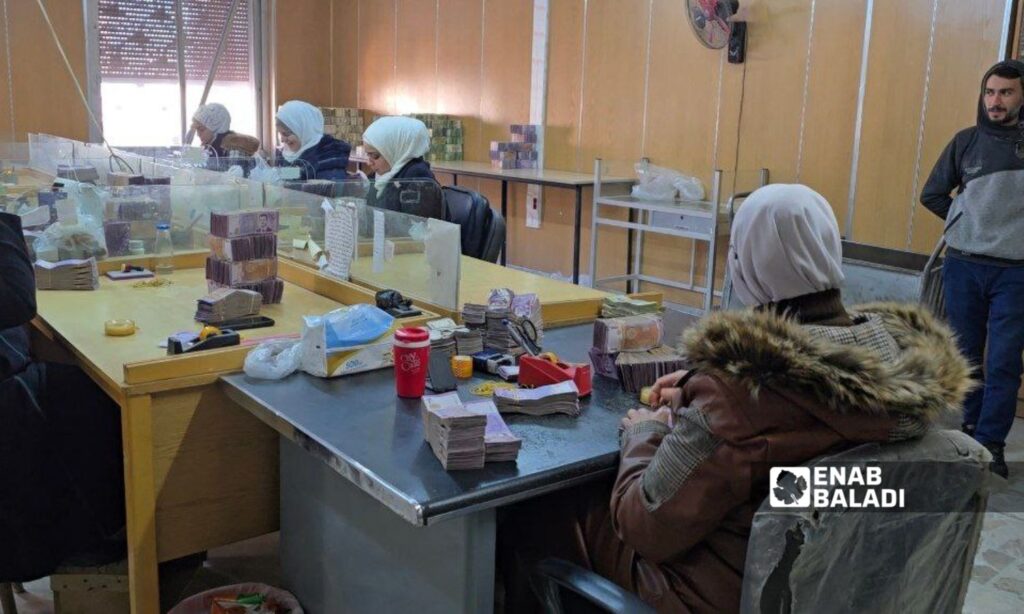The inflation rate in Syria has decreased in 2024 to a rate of 57% compared to the rate reached in 2023, which was 117.3%.
This was revealed in the results of the inflation indicators study in Syria for 2024, announced by the Central Bank of Syria (CBS) yesterday, Wednesday, February 12.
The bank noted that the inflation rate in Syria is higher than the general inflation rate in Lebanon, which stands at 45.5%, and lower than the general inflation rate in Turkey, which is 58.6% for 2024.
The bank attributed the continuous rise in prices, despite the decrease in the inflation rate compared to 2023, to inflationary pressures resulting from rising costs during 2024 (though not at the levels of increases seen in 2023), which led to a decline in domestic demand for components of the basic consumer goods basket, due to a significant drop in real income and a decrease in purchasing power to secure the simplest materials and daily needs, alongside a decline in sales activity.
Inflation is the rise in the general price level, measured by the average price of goods and services in an economy, representing the average between consumer and producer prices. This rise does not necessarily occur in all prices; even during periods of severe inflation, some prices may remain relatively stable, while others may actually decline.
Decreased pressures
The results of the Central Bank’s study indicated a reduction in inflationary pressures following the fall of the ousted regime, explaining this by several reasons.
The bank pointed out that the annual inflation rate in December 2024 reached 6%, which is significantly lower than the 135% recorded for the same period in 2023, attributed to the subsequent improvement in the value of the Syrian pound and a substantial increase in the supply of goods and materials in the local market, leading to a significant reduction in inflationary pressures, according to the study results.
For the same month, the monthly inflation rate recorded a negative value for the first time at -13.8%, which is much lower than the 0.1% rate for November 2024, explained by the noticeable decrease in prices due to reduced inflationary pressures in light of the increase in the supply of goods and materials and improvement in the exchange rate, according to the bank.
Based on the current situation in Syria regarding the rise in the prices of basic goods, the type of inflation currently present is considered an extreme case of stagflation, which is one of the worst economic conditions a country can reach, as stated by economic researcher Zaki Mahshi earlier to Enab Baladi.

